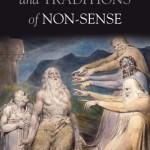We run our website the way we wished the whole internet worked: we provide high quality original content with no ads. We are funded solely by your direct support. Please consider supporting this project.
How NOT to be Christ-Centered: A Review of God With Us – Part III
In the previous two posts on Oliphint’s God With Us, we’ve seen that Oliphint is trying to reframe divine accommodations in a Christ-centered way, but that what he means by this is not that he is going to derive his understanding of God from Christ, but that he is going to use the “hypostatic union” articulated at the Council of Chalcedon as his framework.
Oliphint is admirably forthright in acknowledging the paradoxical nature of the Chalcedonian Christology, as he interprets it. In becoming human while retaining all of God’s essential properties, Oliphint admits that, “the Son of God partakes of two different and seemingly incommensurable kinds of properties” (206). So too, when God became a human while retaining all his essential attributes, he created an “antiomic situation” that inevitable results in “a paradox.” Hence, “any proper attempt at explaining that union will result in paradox” (209).
Indeed, Oliphint several times seems to concede that this Christology is – or at least inevitably appears to be –blatantly contradictory. For example, Oliphint at one point concedes the objection of Thomas Morris concerning the contradictory properties ascribed to one person in the Chalcedonian confession.
That two contradictory properties can reside in one person does not thereby remove the contradiction…just because the two are one does not automatically mean that we can articulate that ”oneness” in an intellectually satisfying way. Thus, because it is one person who has these conflicting properties, it makes it difficult for us to describe his character without quickly reaching our intellectual boundaries (205).
Not only does Oliphint concede that this interpretation of the Chalcedonian Christology is apparently contradictory, but his central strategy for understanding divine accommodations involves turning this “antinomic situation” to his advantage. He does this by using this mysterious hypostatic union as the paradigm for understanding how a wholly independent, atemporal, immutable and impassible God can appear so different in Scripture. Indeed, this is precisely what Oliphint means when he claims to have a Christ-centered understanding of accommodation. “[T]he Chaleconian Creed,” he says, “gives us substantial and significant precedent in which we can accept and affirm that there is a mysterious harmony in [God’s] attributes” as he condescends to interact with his people (205).
Hence, just as God condescended in Christ to take on human attributes without setting aside his essential divine attributes, so too God has throughout history condescended to take on the attributes of his creation as a means of relating to, and revealing himself to, his people. Oliphint essentially applies the “reduplicating strategy” (“X as A is N”), mentioned in Part I, to the whole Bible. As God is in himself, God is wholly independent, pure act, immutable, impassible, etc. As God is in his covenantal activity, however, God can be responsive, change his mind, be influenced by others, experience passions and even acquire information over time (192-94 ).
And here’s where things begin to get interesting (finally, some may be thinking). The most important implication of Oliphint’s Chalcedonian reframing of God’s condescending activity is that it allows him to affirm that the “covenantal attributes” that God acquires as he condescends to relate to humans are real – as real as the humanity that God assumed in Christ. “[God] both is immutable and in his condescension takes on covenantal properties in order really and truly to relate himself to us.” (191). This means that Oliphint doesn’t have to explain passages that depict God experiencing emotion, changing his mind or acquiring information through time by saying they are merely anthropomorphic or phenomenological descriptions, as the classical tradition has typically done. Indeed, Oliphint sides with Open Theists who have, in his view, effectively exposed the weakness of these explanations (183-94, 219-19).
Oliphint rather argues that, “God really does take these properties” (219). Hence, God literally changes his mind (op.cit.) “[T]he God who is immutable and whose plan and purposes for creation and his people will not fail can and does relent” (186). In his view, any explanation of these depictions of God that denies their literal reality “fails to recognize that what God has done in Christ through condescension he has been doing from the dawn of time” (191-92). As God literally became a human in Christ while retaining his essential properties, so too God literally takes on all the properties ascribed to him in Scripture as he condescends to relate to his people.
If one questions how a God who cannot be affected by anything outside himself can nevertheless really be affected by things outside himself and can really be responsive, or if one wonders how a God who is pure act and thus has no potential for change can nevertheless really become something he was not before (the Incarnation) and can nevertheless really change his mind, Oliphint simply points them back to the mystery of the (his interpretation of) the Chalcedonian Christology. In the end, Oliphint concedes that this conception of God is “shrouded in mystery” (226) as he encourages us to “get used to the idea that antimony and paradox will inevitably surround discussions such as this…” (225).
So, what should we make of all this? I will offer my response in the fourth and final segment of this review.
Category: Essays
Tags: Book Reviews, Classical Theism, Cruciform Theology, Essay, God With Us
Topics: Biblical Interpretation
Related Reading

Podcast: What Are Your Thoughts on Jordan Peterson?
Greg and Dan critique Jordan Peterson’s book “12 Rules for Life: An Antidote to Chaos.” Here is a link to that book: 12 Rules for Life: An Antidote to Chaos http://traffic.libsyn.com/askgregboyd/Episode_0358.mp3

The Cross and the Witness of Violent Portraits of God
In my previous post I noted that the prevalent contemporary evangelical assumption that the only legitimate meaning of a passage of Scripture is the one the author intended is a rather recent, and very secular, innovation in Church history. It was birthed in the post-Enlightenment era (17th -18th centuries) when secular minded scholars began to…

The Phinehas vs. Jesus Conundrum
I’ll be frank. This is not a blog that will be easy for some people to read. But it’s a blog I believe every follower of Jesus should read – even if you have to force yourself to press on. It’s about something we all wish was not true. It’s about the way the Bible…

Living With a Kingdom Consciousness
What Is the Kingdom of God? I want to begin by asking, “What is the kingdom of God?” This may seem like a rather obvious question. We all know what the Kingdom of God is, right? But see, this is precisely the problem. It’s why (I shall argue) the Kingdom of God is largely absent…

God of Sense and Traditions of Non-Sense
As the title suggests, in his book, God’s Problem: How The Bible Fails to Answer Our Most Important Question – Why We Suffer, Bart Ehrman argues that the Bible has nothing compelling to say about the problem of evil. Well, I just put down a beautifully written four-hundred and fifty page book that compellingly argues…

Part 1 (of 15): Introduction — What’s Up With Jordan Peterson?
Assessing Jordan Peterson’s “12 Rules for Life” by Greg Boyd Over the last two years I have, with increasing frequency, been asked what I thought of the views of this maverick Canadian thinker named Jordan Peterson. Sometimes the question was asked by admirers, if not devotees, of his writings and (more commonly) of his online…

